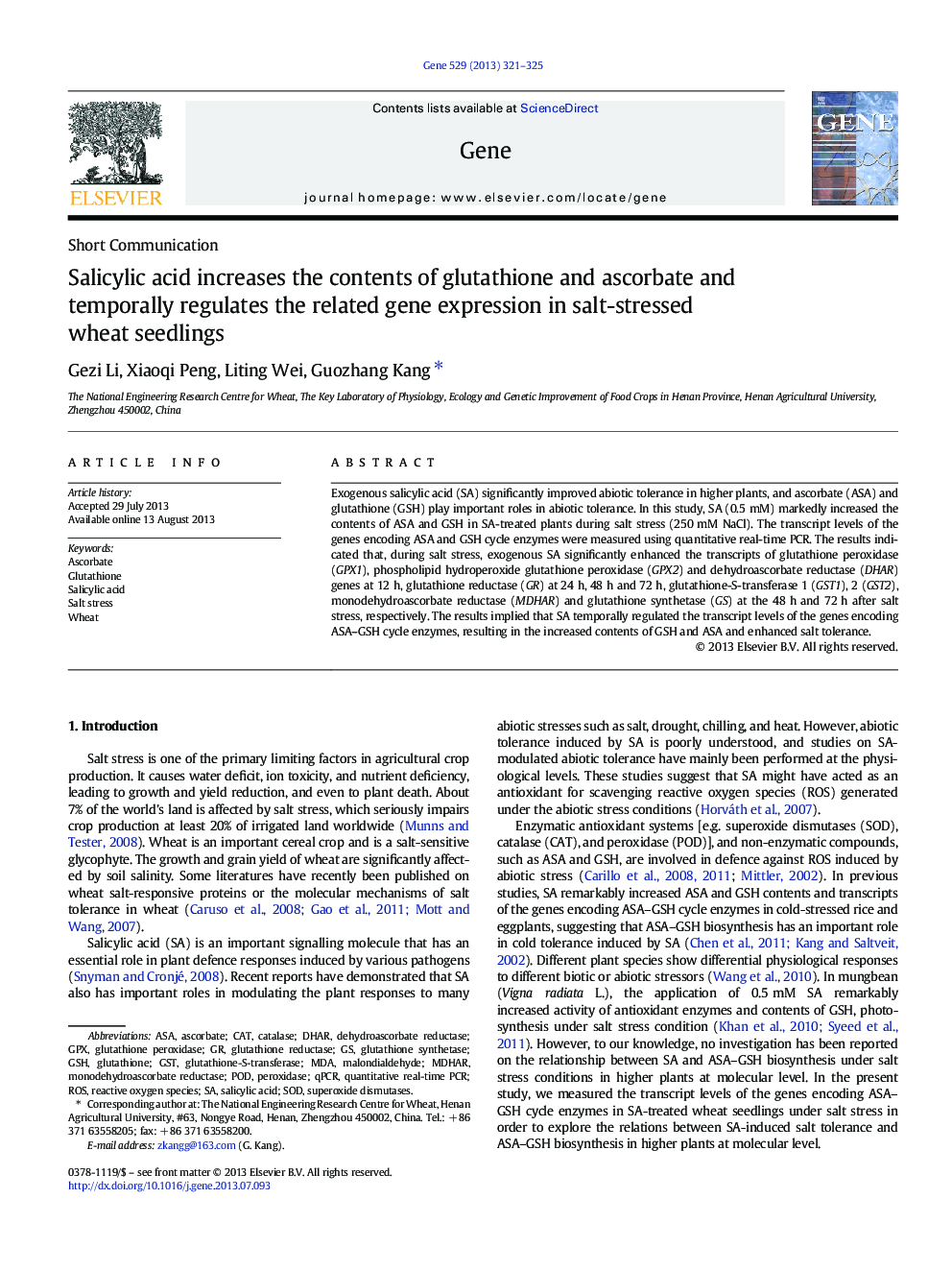| Article ID | Journal | Published Year | Pages | File Type |
|---|---|---|---|---|
| 5906178 | Gene | 2013 | 5 Pages |
â¢Salicylic acid (SA) enhanced the salt tolerance of wheat seedlings.â¢SA increased the contents of ASA and GSH in salt-stressed wheat seedlings.â¢SA temporally regulated the transcript levels of eight genes encoding ASA and GSH.â¢SA-induced salt tolerance may be associated with the ASA-GSH biosynthesis.
Exogenous salicylic acid (SA) significantly improved abiotic tolerance in higher plants, and ascorbate (ASA) and glutathione (GSH) play important roles in abiotic tolerance. In this study, SA (0.5Â mM) markedly increased the contents of ASA and GSH in SA-treated plants during salt stress (250Â mM NaCl). The transcript levels of the genes encoding ASA and GSH cycle enzymes were measured using quantitative real-time PCR. The results indicated that, during salt stress, exogenous SA significantly enhanced the transcripts of glutathione peroxidase (GPX1), phospholipid hydroperoxide glutathione peroxidase (GPX2) and dehydroascorbate reductase (DHAR) genes at 12Â h, glutathione reductase (GR) at 24Â h, 48Â h and 72Â h, glutathione-S-transferase 1 (GST1), 2 (GST2), monodehydroascorbate reductase (MDHAR) and glutathione synthetase (GS) at the 48Â h and 72Â h after salt stress, respectively. The results implied that SA temporally regulated the transcript levels of the genes encoding ASA-GSH cycle enzymes, resulting in the increased contents of GSH and ASA and enhanced salt tolerance.
